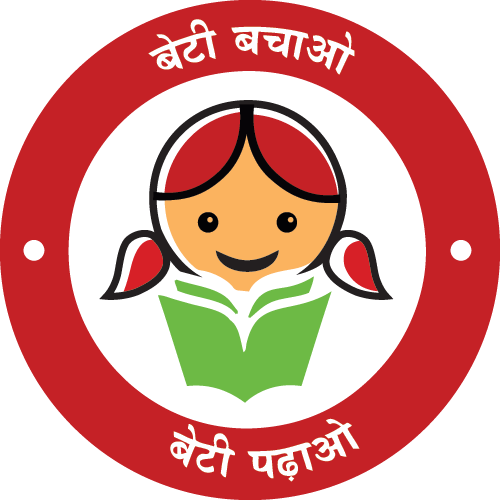Dr. Charu WaliKhanna, Member, NCW was Chief Guest in State Level Seminar on “Women’s Safety: A Challenge mainly focusing on Domestic Violence against Women” organized by Heal India on 18th December, 2013 at Nalanda, Bihar
The programme began with the lighting of the lamp and welcome song by girls from local school Green Garden followed by welcome address by Shri Upendra Kumar Vibhuti, President, Sambhav.
Delivering the inaugural address Member said that a home is synonymous with warmth, safety and security, but sometimes the same home becomes the place of violence where the woman suffers. She elaborated that domestic violence comprises abuse which is physical, sexual, emotional, economic or psychological. This includes any behaviour that frightens, intimidates, terrorizes, manipulates, hurts, humiliates, blames, injures or wounds.
The participants of the workshop consisted mainly of young unmarried girls and some married women. The programme was organized in an interactive and question answer format. During the session Member asked a participant what would she do if her husband beat her up? The woman replied that she would try to improve herself “mein apne aap ko sudhar karoongi”. This clearly reflects to what extent women have internalized their subordinate status and blame themselves for the violence.
Dignitaries included State Commission Members Ms. Safia Akhtar and Ms. Savita Natraj, Shri Gupteswar Pandey, IPS ADG Police (M), Bihar who also shared his views on the issue of domestic violence against women; Dr. Suman Lal, President, Prayas Bharti Trust stressed on the need for women to be strong and Ms. Nina Singh, CDPO, also gave her views.
Member stressed that when the woman assumes a passive role, the man’s aggressive tendencies get further aggravated and he starts believing that he can indulge in violence and get away with it. Some of the young unmarried girls very enthusiastically said that they would punch the man if he tries to raise his hand. The girls also raised the question as to why there is a time limit of 10 pm for them but not for boys. Member emphasized that there is need to have balance and harmony in relationships.
- Some of the suggestions which emerged from the young girls are as below
- It is necessary to sensitize males on gender issues
- Most importantly, parents need to be sensitized to treat their son and daughter equally
- For society to be sensitive on gender issues, house to house awareness needs to be created
- Nur-nari dono ki hai jimmedari
At the end of the session all the girls took a vow that they would resist violence and will not marry below the age to 20 years and have the first child after the age of 23 years.
The programme ended with awards distribution ceremony to the social workers for their invaluable work and VOTE OF THANKS by Ms.Abha Kumar.
On 17.12.2013 prior to the seminar Member held meeting Shri S N Singh, District Judge, Nalanda, and other judicial officials Shri Arunendra Singh, ADJ, Shri Kishore Prasad, ACJM, and Shri Akhilesh Singh, Munsif. The meeting was facilitated by Justice Ms. Anjana Prakash, judge, Patna High Court and Member(CWK) was accompanied by Members State Commission for Women, Bihar Ms. Safia Akhtar and Ms. Savita Natraj. Discussed was the low rate of conviction especially in cases of violence against women. The court informed the Commission that the judicial officers are also very concerned on the rising crime against women and admitted that until conviction rates are high the law will not be a deterrent. On their part they were very candid and said that the court can only take a decision on the basis of the evidence before it, but unfortunately it has been consistently observed that it is the woman herself who turns hostile in addition to shoddy investigation by police. All the judges themselves felt that increase in conviction will act as a deterrent to crime.
The District Judge informed the Member that the region comprised village oriented society and still fear of society prevailed among the locals. Hence, there almost negligible cases of sexual assault, but mostly the cases related to harassment for dowry. The role of advocates in involving the whole matrimonial family even relatives who are not even on the spot was discussed. On being asked to suggest solutions to the problem, the judges all unanimously said that the women needs to take a stand in court and to be bold enough to stand by her original statement while testifying as prosecution witness. There is a need for women to make independent decisions and not be influenced by anyone. This will only be possible when her condition is improved in society and she gets economic independence and social protection.
The District judge informed of a common problem in the area i.e. bigamy. When men migrate for better opportunities to big cities and on being exposed to the urban culture, suddenly feel that their wife from the village is not good enough for them and they want to marry a woman with more dowry. An example was given of an already married man who after selection in the Indian Air Force deserted his wife. The District Judge and other judges showed sensitivity to gender issues and said that mediation is encouraged and judges spend lot of time trying to mediate in two parties in matrimonial disputes. The cases relating to dowry are maximum in Vaishali and Samastipur where the development is maximum.
Member sensitized the judiciary on gender issues and said that women who come to court face numerous problems including being vulnerable to threats and violence; because subordinate courts comprise small and congested rooms without proper facilities, where the woman victim is made to stand in close proximity with the accused who is normally related to her. To overcome the problem of subversion of witnesses she recommended that in serious cases of violence against women like RAPE the police should try to reduce the trauma of multiple statements of the victim and directly record statement under Section 164 before Metropolitan Magistrate or Judicial Magistrate. Statement of other prime witnesses should also be recorded under Section 164. The advantage of the same would be that the possibility of witnesses resiling from statement is reduced and even if witness resiles the Court can say that statement under section 164 is trustworthy.
On being asked about the ratio of women judges, Nalanda District Court has 4 female judges as against 24 male judges which include CJM, Civil Judges and Magistrate.
Thereafter, Member proceeded to Rajgir where she met Dy. Superintendent of Police Shri Mukul K Ranjan. The bride burn / dowry death case of Ms. Sranjana Kumari was discussed. The DSP informed that the Nalanda police was in receipt of communication from the National Commission for Women and however, since, the death / cause of action had taken place in Patna the matter was not within their jurisdiction. However, he assured that the Commission would be informed of the status in due course of time after obtaining the same from Patna.
On record is the statement of the deceased (enclosed) made to the police which is more in the form of a formal statement i.e. “I, wife of .... Daughter of .... Age ....... .“ and has only two lines related to her harassment. When a woman is dying with 60% burns and not in proper condition to talk, in a situation a grave doubt is expressed whether the deceased could have made such a detailed statement as the one which is on record. Further, the deceased was in hospital for over a week and there was enough time for statement to be recorded by the doctor or magistrate which does not appear to have been done; whereas media was able to record statement prior to her death.
On the other hand the father of the deceased came to meet Member and alleged that it was a case of dowry death and appropriate sections had not been incorporated in the FIR i.e. FIR has been registered under Section 306 IPC and not Section 304 B IPC. He also produced before the Commission a CD containing a dying declaration (enclosed) made to media persons. The CD provided by the father appears to be truthful in as much the deceased has not introduced any exaggeration and narrated only the basic and important facts, namely demand for dowry. She has also said that her in-laws poured kerosene and set her on fire. The dying declaration ought to be accepted as voluntary and truthful and there appears no reason to disbelief the same.
Moreover, it has been recorded in a question answer form and statement of the deceased does not appear to be vindictive.
The question arises that when the said CD was available why has it not come on record or formed part of investigation / evidence? The admissibility of evidence, reliance and appreciation of evidence is the role of the court and not police.
Copy of the said CD was made with assistance from DM Nalanda, Ms. Palka Singh, IAS. On return to Delhi for follow-up letter with CD was sent to DGP, Bihar to look into the matter and file supplementary charge sheet under Section 304B IPC taking appropriate action in accordance with law; and Bihar State Commission for Women for follow up.




















